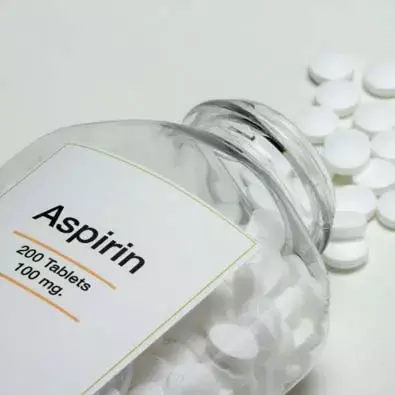- Home
- Medical news & Guidelines
- Anesthesiology
- Cardiology and CTVS
- Critical Care
- Dentistry
- Dermatology
- Diabetes and Endocrinology
- ENT
- Gastroenterology
- Medicine
- Nephrology
- Neurology
- Obstretics-Gynaecology
- Oncology
- Ophthalmology
- Orthopaedics
- Pediatrics-Neonatology
- Psychiatry
- Pulmonology
- Radiology
- Surgery
- Urology
- Laboratory Medicine
- Diet
- Nursing
- Paramedical
- Physiotherapy
- Health news
- Fact Check
- Bone Health Fact Check
- Brain Health Fact Check
- Cancer Related Fact Check
- Child Care Fact Check
- Dental and oral health fact check
- Diabetes and metabolic health fact check
- Diet and Nutrition Fact Check
- Eye and ENT Care Fact Check
- Fitness fact check
- Gut health fact check
- Heart health fact check
- Kidney health fact check
- Medical education fact check
- Men's health fact check
- Respiratory fact check
- Skin and hair care fact check
- Vaccine and Immunization fact check
- Women's health fact check
- AYUSH
- State News
- Andaman and Nicobar Islands
- Andhra Pradesh
- Arunachal Pradesh
- Assam
- Bihar
- Chandigarh
- Chattisgarh
- Dadra and Nagar Haveli
- Daman and Diu
- Delhi
- Goa
- Gujarat
- Haryana
- Himachal Pradesh
- Jammu & Kashmir
- Jharkhand
- Karnataka
- Kerala
- Ladakh
- Lakshadweep
- Madhya Pradesh
- Maharashtra
- Manipur
- Meghalaya
- Mizoram
- Nagaland
- Odisha
- Puducherry
- Punjab
- Rajasthan
- Sikkim
- Tamil Nadu
- Telangana
- Tripura
- Uttar Pradesh
- Uttrakhand
- West Bengal
- Medical Education
- Industry
Aspirin Use Improves Survival in elderly with Bladder or Breast Cancer: JAMA

Aspirin is recommended for the prevention of cardiovascular diseases events in the past decades and is one of the most commonly used drugs worldwide. A recent study suggests that any aspirin use and aspirin use at least 3 times/week was associated with improved bladder and breast cancer survival. The study findings were published in the journal JAMA Network Open on January 15, 2021.
The aspirin use, nonselectively inhibits cyclooxygenase, thus suppressing inflammation, it stands to reason that long-term aspirin use may affect cancer initiation. Recent large-scale evaluations have indicated aberrant immune cell activity in several tumor types, including bladder, breast, gastric, and uterine tumors, providing a prime target for aspirin activity. Furthermore, aspirin use has been demonstrated to affect survival after a cancer diagnosis, although the data remain mixed. Many studies have evaluated the long-term benefits of aspirin use; however, the association of aspirin use with cancer incidence and survival in older individuals remains uncertain. Additional population-based evidence of this association is necessary to better understand any possible protective effects of aspirin in older adults. Therefore, researchers of the National Cancer Institute, Maryland conducted a study to investigate the association of aspirin use with risk of developing new cancers and site-specific cancer-associated survival in bladder, breast, esophageal, gastric, pancreatic, and uterine cancers.
It was a post hoc analysis of the Prostate, Lung, Colorectal, and Ovarian Cancer (PLCO) Screening Trial. Researchers included a total of 1,39,896 participants who were aged 65 years or older at baseline (1993-2001) or reached age 65 during follow-up. They analyzed the data from January to June 2020. The major outcome assessed was the incidence of and survival from the investigated cancer types. They used Cox proportional hazards regression model to calculate the Univariable and multivariable hazard ratios (HRs) and 95% Confidence intervals by adjusting for covariates.
Key findings of the study were:
• Among 1,39,896 participants, researchers noted 5.4% had bladder, 14.0% breast, 1.0% esophageal, 1.2% gastric, 2.7% pancreatic, and 2.2% uterine cancer (other cancers were excluded).
• They found that aspirin use was not associated with the incidence of any of the investigated cancer types among individuals aged 65 years or older.
• Upon regression analysis, they found that aspirin use at least 3 times/week was associated with increased survival among patients with bladder (HR, 0.67) and breast (HR, 0.75) cancers but not among those with esophageal, gastric, pancreatic, or uterine cancer.
• They also found a similar association in any aspirin use with bladder (HR, 0.75) and breast (HR, 0.79) cancer survival rate.
The authors concluded, "In the current study, any aspirin use and aspirin use at least 3 times/week was associated with improved bladder and breast cancer survival. Associations between aspirin use and incidence of any of the investigated cancers or between aspirin use and esophageal, gastric, pancreatic, or uterine cancer survival were not observed".
For further information:
https://jamanetwork.com/journals/jamanetworkopen/fullarticle/2775219
Medical Dialogues Bureau consists of a team of passionate medical/scientific writers, led by doctors and healthcare researchers. Our team efforts to bring you updated and timely news about the important happenings of the medical and healthcare sector. Our editorial team can be reached at editorial@medicaldialogues.in.
Dr Kamal Kant Kohli-MBBS, DTCD- a chest specialist with more than 30 years of practice and a flair for writing clinical articles, Dr Kamal Kant Kohli joined Medical Dialogues as a Chief Editor of Medical News. Besides writing articles, as an editor, he proofreads and verifies all the medical content published on Medical Dialogues including those coming from journals, studies,medical conferences,guidelines etc. Email: drkohli@medicaldialogues.in. Contact no. 011-43720751


